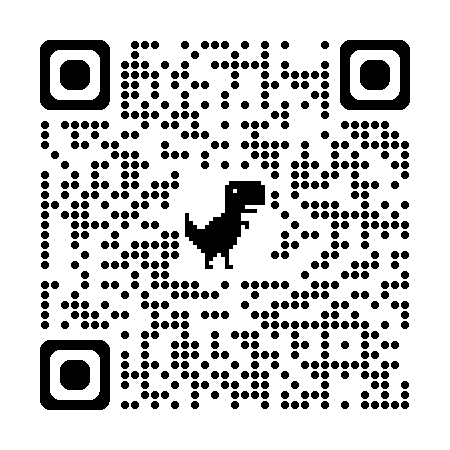Role Stressor and Work Adjustment of University Lecturers in Delta State
Keywords:
Role stressors, work adjustment, role ambiguity, role conflict, role overloadAbstract
Background: Role stressor is incredibly inevitable in nature and has elevated to a top workplace concern. Despite its high prevalence worldwide, researchers have paid less attention to those employed by the education system in Nigeria.
Objective: The study examined the effect of role stressors on the work adjustment of university lecturers in Delta State.
Methodology: The study used a cross-sectional research design and the questionnaire served as the instrument for data collection. A total of 300 lecturers took part in the study. The respondents were sampled using the stratified random sampling technique. The correlation, ANOVA and linear regression analysis were used to analyze data for the study.
Result: Role stressors significantly influence how people adjust to their jobs. Interactions between individuals and their surroundings that are considered as stressful or that are beyond their capacity for adaptation can lead to human stress and endangering their long-term well-being.
Conclusion: Role stressor has a positive and significant impact on university lecturers' ability to adjust to their jobs in Delta State.
Unique Contribution: The study has helped to establish the nexus between role stressors and lecturers’ ability to adjust to their jobs in the education system in Delta State.
Key Recommendation: Stress management techniques should be incorporated into Nigerian public institutions. Ergonomics, which lessens physical stress on a worker's body, should also be taken into consideration.
References
Bayl-Smith, S., & Griffin, B. (2018), Maintenance of D-A fit through work adjustment behaviours: The moderating effect of work style fit. Journal of Vocational Behaviour, 106, 209 -219.
Cox, T., Griffiths, A., & Rial-Gonzalez, E. (2000). Workplace stress. UK: European Agency for Safety and Health at Work.
Dawes, R.V. (1994). The theory of work adjustment as convergent theory. Palo Alto: CPP Books.
Dawis, R. V. (2004). The Minnesota theory of work adjustment. In S. D. Brown & R. W. Lent (Eds.). Career development: Putting theory and research into practice. Hoboken, NJ: John Wiley.
Dawis, R. V., & Lofquist, L. H. (1984). A psychological theory of work adjustment: An individual-differences model and its ap¬plications. Minneapolis, MN: University of Minnesota Press.
Dewe, P., O’Driscoll, M., & Cooper, C. (2010). Coping with work stress: A review and critique. Chichester: Wiley-Blackwell.
Hair, J. F. Hult, G. T. M., Ringle, C. M., & Sarstedt, M. (2017). A primer on partial leas squares structural equation modeling. London: sage.
Health Safety Executive. (2006). Work related stress and psychological disorders. Retrieved from http://www.Hse.gov. uk/stress / index.htm on March 5th, 2023.
Hesketh, B., & Griffin, B. (2005). Work adjustment. In W. B. Walsh & M. L. Savicas (Eds.). Handbook of vocational psychology. Mahwah, NJ: Lawrence Erlbaum.
Jian, G. (2014). Revisiting the association between LMX quality with perceived role stressors: Evidence of inverted-U relationship among immigrant employees. Communication Research, 41, 52 -73.
Kanchan, P., Parul, G., Tyagi, A., & Srivastava, R. (2018). Level of stress and work adjustment among medical professionals. Santosh University Journal of Health Sciences, 4(2), 100 – 104.
Liaw, J. O. H., Ridzuan, A. A., Zainol, N. A. M., Yaacob, S., Mohaiyadin, N. M., & Mardzuki, K. (2018). Role stressors as a determinant of job performance. International Journal of Engineering & Technology, 7(4.38,) 1521-1525.
Lofquist, L. H., & Dawis, R. V. (1991). Essentials of person-environment-correspondence counseling. Minneapolis, MN: University of Minnesota Press.
Obiora, O. A., Iyke-Ofoedu, M. I., & Uzochukwu, A. C. (2023). Effect of stress management strategies on employee Job performance in deposit money banks in Nigeria. International Journal of Advanced Multidisciplinary Research and Studies, 3(2), 200 -208.
Odebode, A. A., Ola-Alani, E. K., & Gambari, S. O. (2019). Adjustment strategies for marital stress among female teachers in Nigeria: Implications for counselors. Indonesian Journal of Guidance and Counseling: Theory and Application, 8(2), 101-107.
Orji, M. G., & Makubu, G. N. (2020). Effective stress management and employee productivity in the Nigerian public institutions; A Study of national galary of arts, Abuja, Nigeria. Budapest International Research and Critics Institute-Journal, 3(2), 1303 – 1315.
Prasad, K. D. V., Vaidya, R., & Rani, R. (2023). Remote working and occupational stress: Effects on IT-enabled industry employees in Hyderabad Metro, India. Front. Psychol. 14(1), 1 - 14.
Shruti, T., Pranab, K., & Jha, A. N. (2012). A conceptual study on role stressors, their impact and strategies to manage role stressors. IOSR Journal of Business and Management, 4(1), 44 -48.
Tamunomiebi, M. D., & Mezeh, A. A. (2021). Workplace stressors and employee performance: A conceptual review. Asian Journal of Economics, Business and Accounting, 21(4), 57-66.
Tojue, O. G., Audu, O. L., & Nnamani, J. N. (2023). Effect of stress management techniques on employee Job performance in manufacturing firms in Nigeria. World Journal of Advanced Research and Reviews, 18(02), 449 - 461.
Uysseveldt, J., Wiggen-Valkenburg, T., & Karen, D. (2021). The self-initiated work adjustment for learning scale: development and validation. Journal of Managerial Psychology, 2, 28-34.
Xu,Y., & Wang, Y. (2023). Job stress and university faculty members’ life satisfaction: The mediating role of emotional burnout. Front. Psychol. 14(2), 1-10.
Yohanes, S., Hailemariam, H., & Arefayne, A. (2022). Work‑related stress and associated factors among employees of Hawassa industrial park, southern Ethiopia: An institutional based cross‑sectional study. BMC Psychiatry, 22, 1 – 10.
Zeidner, M., & Endler, N. S. (2006). Handbook of adjustment. New York: Wiley Publication.
Downloads
Published
How to Cite
Issue
Section
License
Copyright (c) 2023 Abraham Ejogba Orhero, Onofere Princewill Okereka, Ugo Chuks Okolie

This work is licensed under a Creative Commons Attribution-NonCommercial-ShareAlike 4.0 International License.



